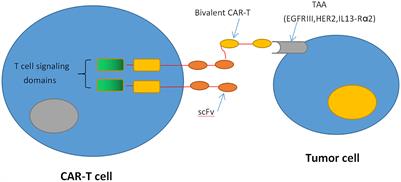EDITORIAL
Published on 27 Oct 2021
Editorial: The State-of-Art in Immuno-Oncology, What to Do With Glioblastoma?
doi 10.3389/fimmu.2021.788733
- 1,658 views
117k
Total downloads
290k
Total views and downloads
Select the journal/section where you want your idea to be submitted:
EDITORIAL
Published on 27 Oct 2021
ORIGINAL RESEARCH
Published on 16 Jun 2021

ORIGINAL RESEARCH
Published on 17 Mar 2021

REVIEW
Published on 09 Mar 2021

REVIEW
Published on 23 Feb 2021

REVIEW
Published on 22 Feb 2021

REVIEW
Published on 18 Feb 2021

ORIGINAL RESEARCH
Published on 03 Feb 2021

ORIGINAL RESEARCH
Published on 21 Dec 2020

ORIGINAL RESEARCH
Published on 08 Dec 2020

MINI REVIEW
Published on 30 Nov 2020

ORIGINAL RESEARCH
Published on 30 Nov 2020


Frontiers in Oncology